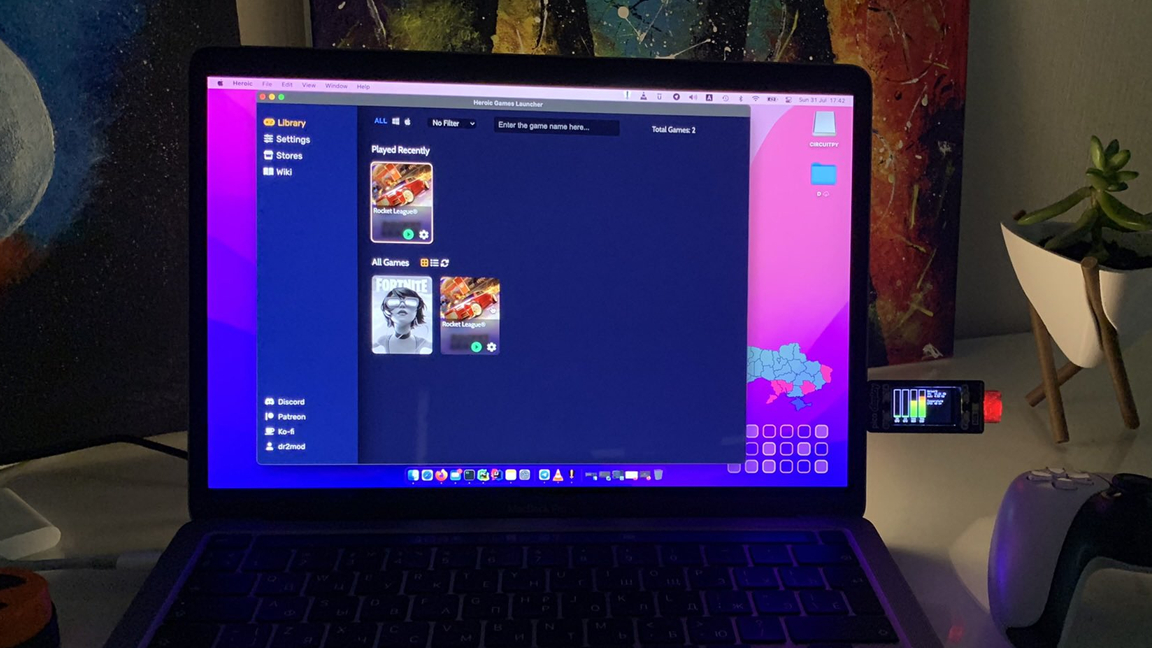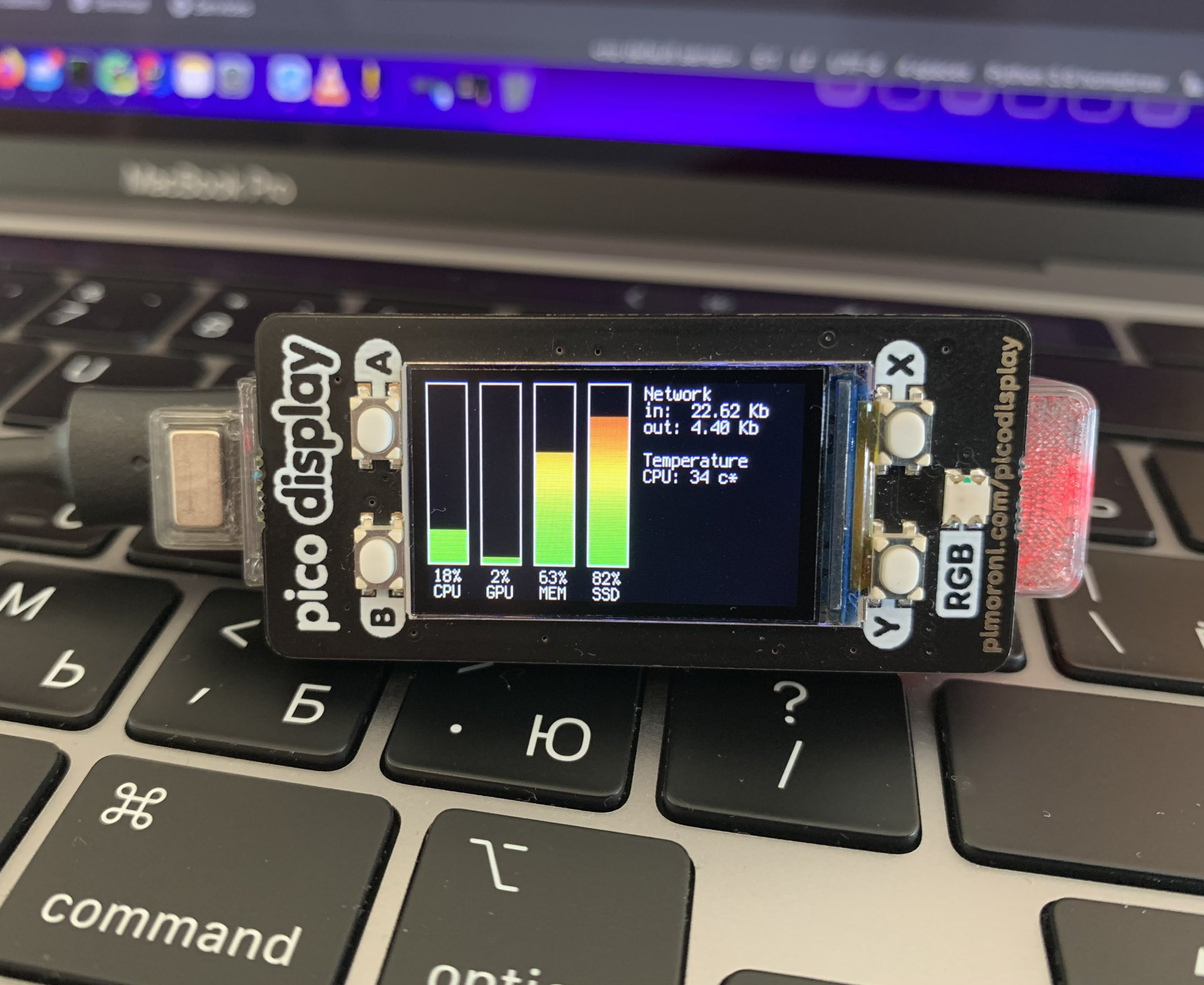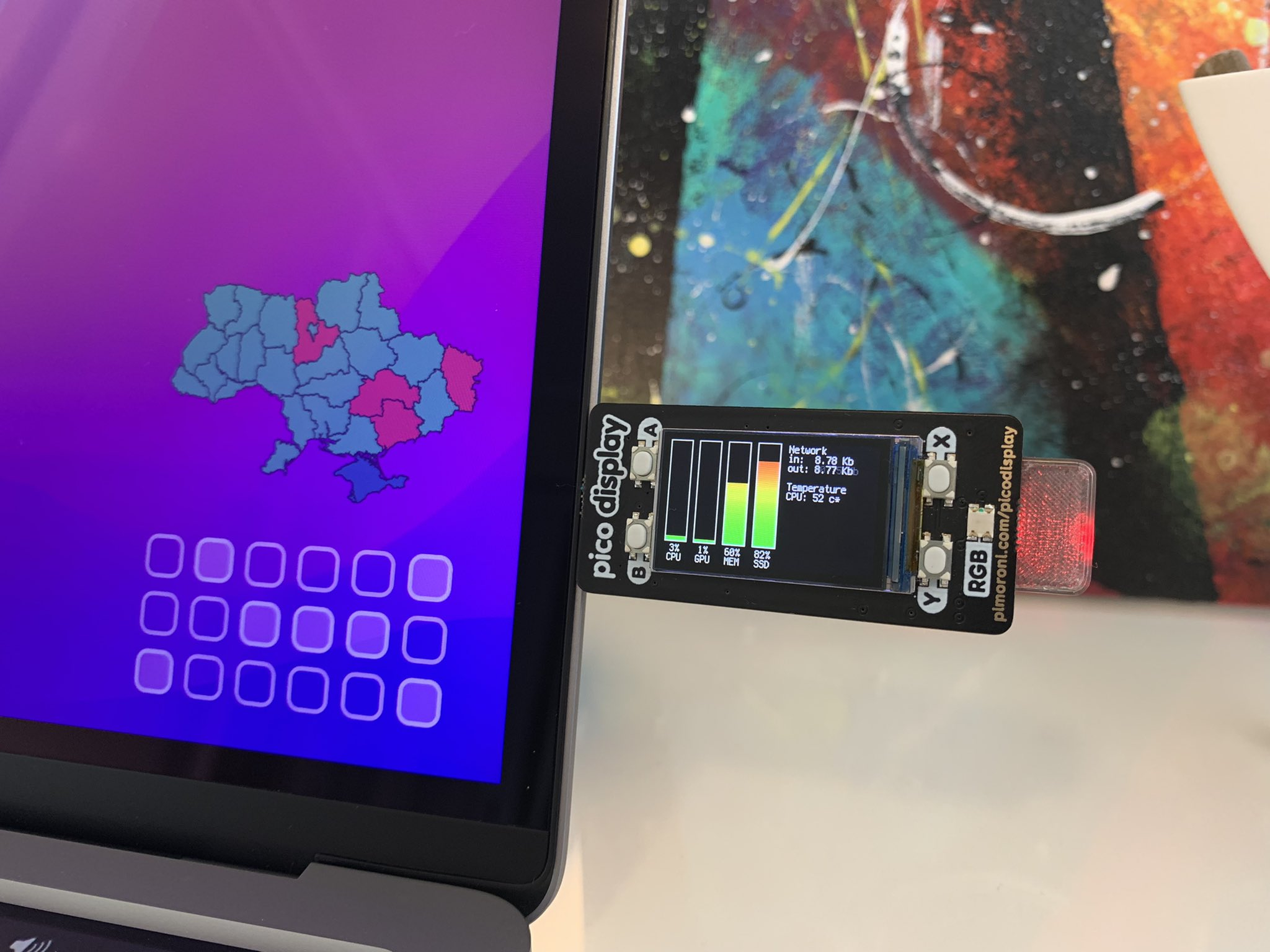
Dmytro Panin is at it again, creating a teeny system monitor for his MacBook from scratch with help from our favorite microcontroller, the Raspberry Pi Pico. This plug-and-play system monitor lets him keep a close eye on resource usage without having to close any windows or launch any third-party programs.
The device is Pico-powered and plugs right into the MacBook to function. It has a display screen that showcases a custom GUI featuring four bar graphs that update in real-time to show the performance of different components, including the CPU, GPU, memory, and SSD usage. It makes it possible to see how hard your PC is running at a glance.
Panin released a demo video of the module in action that is available on Twitter. In the demo, we see the hardware stats update automatically on the Pico Display Pack without the need to launch a third-party application on his machine. To the side of the bar graphs are more details for network usage and CPU temperature.


Recreating this project requires very little in the way of hardware. At the bare minimum, you’ll need a Raspberry Pi Pico and a Pimoroni Pico Display Pack. Users can also add an LED for a status indicator which would require a resistor to complete the circuit. Finally, there is a 3D printed component, which will also come out on Panin’s Printable’s profile.
The code for the system monitor was written by Panin using Circuit Python. To install the software, users need to plug in the Pico to a PC and then drag and drop the Circuit Python application to the Pico. Users can copy and explore the code for themselves over at GitHub.
If you want to recreate this Raspberry Pi project at home, check out the original thread on Twitter, where you can see it in action and find a few more details about its construction. Also, be sure to follow Dmytro Panin for more cool Pi projects as well as any future updates on this one.
Stay On the Cutting Edge: Get the Tom's Hardware Newsletter
Get Tom's Hardware's best news and in-depth reviews, straight to your inbox.

Ash Hill is a contributing writer for Tom's Hardware with a wealth of experience in the hobby electronics, 3D printing and PCs. She manages the Pi projects of the month and much of our daily Raspberry Pi reporting while also finding the best coupons and deals on all tech.
-
husker With glass panel cases being so predominant, support for something like this should be integrated into motherboards.Reply